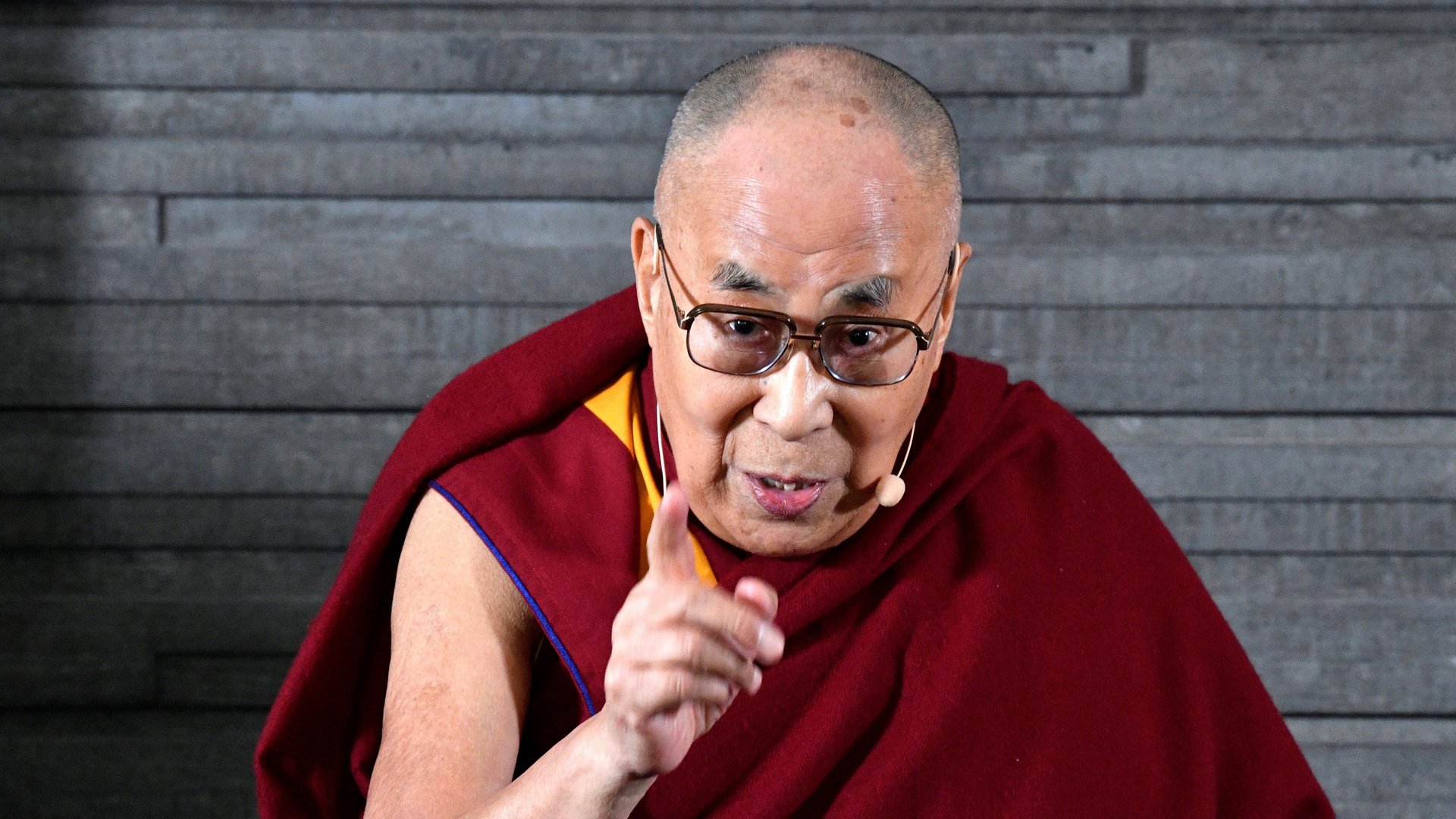“You have given me ammunition,” the Dalai Lama tells Buddhist abuse victims
The Dalai Lama admitted in an interview on Dutch public television on Sept. 15 that he’s been aware of accusations of sexual abuse by Buddhist teachers for decades. Still, he thanked victims he met with on Sept. 14 in the Netherlands for coming forward and encouraged others to speak out.


The Dalai Lama admitted in an interview on Dutch public television on Sept. 15 that he’s been aware of accusations of sexual abuse by Buddhist teachers for decades. Still, he thanked victims he met with on Sept. 14 in the Netherlands for coming forward and encouraged others to speak out.
“You have given me ammunition,” the Dalai Lama reportedly told the group, according to Oane Bijlsma, one of the four victims who met with him. The Buddhist magazine Lion’s Roar reports that Bijlsma also said that the spiritual leader vowed to address victims’ concerns. The meeting was held after a petition by victims of sexual abuse by prominent Buddhist teachers—at this point signed by more than 1,850 people and promoted with the hashtag #MeTooGuru—urged the Dalai Lama to take a stand.
During the gathering, he reportedly agreed to a list of their demands. They asked him to request that the Mind & Life Institute, the US-based nonprofit that hosts dialogues with scientists and Buddhists, hold a meeting on human sexuality, abuse by religious teachers, and sexual trauma. The victims want the topic of teacher abuse on the agenda of a gathering of religious leaders and representatives of the major Tibetan schools in Dharamsala in November, as well. Finally, they want the Dalai Lama to publicly reaffirm that Buddhist teachers who commit criminal offenses, just like any other citizen, are liable to prosecution and civil action.
“He was very clear about the three points in our petitions,” Bijlsma told Lion’s Roar. “He more or less immediately agreed that putting it on the agenda of the meeting in Dharamsala was a very good plan. He also agreed that making it a spearpoint theme during a Mind Life gathering was a very good plan… [and] he said that no Tibetan teacher is above the law. He reaffirmed that.”
In the TV interview, the Dalai Lama didn’t explain how no action had been taken for a quarter century since he first heard the abuse allegations. He did note, however, that abusers “don’t care about the Buddha’s teaching” and encouraged Tibetan spiritual leaders to discuss the issue at the gathering planned in Dharmshala this November. He also said, “I think the religious leaders should pay more attention.”
Whether or not this was an intended allusion to the Catholic Church—roiled with sexual-abuse scandals for decades and is still coming to terms with extent of its institutional coverups—it’s difficult not to see the statement that way. The Dalai Lama is encouraging victims to take a stand and speak out, perhaps in an effort to differentiate Buddhist institutions.
The Independent reports that Tseten Samdup Chhoekyapa, who represents the Dalai Lama in Europe, defended the leader, saying he’s “consistently denounced” abuses by teachers against students and long decried them as “irresponsible and unethical behavior.”